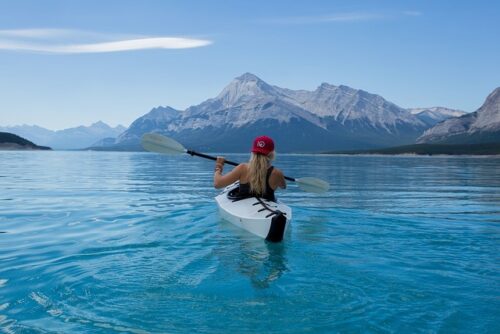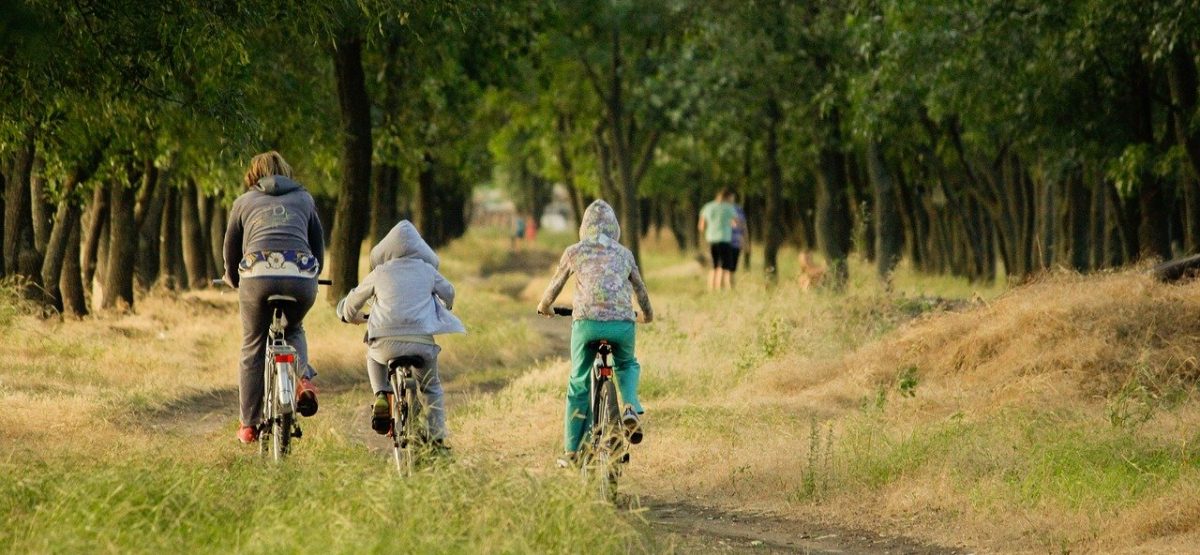It is sometimes simple to completely lose sight of life’s deeper meaning in the midst of the everyday commotion. In addition to the goals we have set for ourselves, there are a lot of additional things we would like to know. And occasionally, we seem completely overwhelmed by the tough situations we deal with on a daily basis. We began to feel so isolated and disconnected that we considered withdrawing.

It’s amazing how effortlessly and unconsciously we settle into a daily pattern while continuing to feel as though we’re not accomplishing enough. For some reason, we want excitement and risks—perhaps it’s a way of feeling that life has value. Then we understand that seeking adventure is the aspect of life pleasure we desire.
What Is An Adventure And Why Seek For It?
Adventure is a wonderful aspect of life and work, but it’s frequently disregarded. It’s something that all of us who initially desire a good life may use.
It offers us the chance to overcome restrictive mindsets or beliefs and can assist us in growing in confidence and strength as we acquire the ability to confront our anxieties. We feel more completely awake, conscious, and free when we are on an adventure. It provides us with the vitality and thrill of travel, exploration, and surprise. It assists us in realizing our true selves.
Reconnecting with our innate feelings and senses, especially after living an uncertain life, can be facilitated by adventure. It appears that we can learn a lot about managing and living from adventure experiences. It’s true that we don’t only sometimes get the chance to embark on thrilling, risky, and uncertain activities. But our adventure moments can result in the achievement of significant objectives, neither of which would have been attainable if we didn’t have the courage to try.
Since there are so many ways to bring adventure into our lives, we are always presented with new experiences that we want to try to accomplish. Of course, there are times when we don’t like to get involved or participate in certain activities because we decide to go out of adventure chances owing to a limiting perception of ourselves as “not a risk-taking type.”
Fortunately, despite the mistaken assumption, we still understand that adventure has many positive effects on us, and we may utilize adventure therapy to improve our psychological and emotional wellness.

What Is Adventure Therapy?
An innovative approach to psychosocial treatment, adventure therapy goes beyond the confines of conventional in-office and telemedicine techniques. In order to enhance psychological, physical, social, and spiritual well-being, clients participate in activities like rock kayaking, hiking, rock climbing, and other nature-based activities rather than talking about their ideas, sentiments, and behaviors while lounging on the sofa.
It usually happens outside and includes a range of enjoyable—and frequently difficult—physical activities. Therefore, when we go on outings, qualified mental health specialists offer instruction and supervision.
Adventure therapy aims to show positive behavior and improve general welfare and well-being by encouraging us to explore nature and challenge our limits. Yes, there are physically demanding days. Despite the fact that we occasionally have to deal with elements such as rain, wind, or cold—which can result in filth and chills—at the end of the day, when we reflect on our accomplishments, it tends to make us feel greater on the innermost level.
Benefits Of Adventure Therapy
It Allows Us To Experience The Therapeutic Properties Of Nature
Outdoor therapy, which involves spending time in nature, has the potential to function as mental health treatment and enhance psychological wellness in several ways, including fostering a sense of serenity and optimism. Spending time outside has been demonstrated to reduce stress, anxiety, and depression, to start with.
Spending time outdoors and away from mobile screens helps balance the stimulation of the nervous system and mood disturbances brought on by excessive screen time.
Additionally, it helps us focus on something greater than ourselves by removing us from our own thoughts. That feeling of amazed, as one might while taking in a breathtaking mountain view or surrounded by a beautiful forest, can promote more giving and constructive social behaviors.
It also helps us pay attention to something greater than ourselves by removing us from our own negative thoughts. Furthermore, it has been demonstrated that spending time in nature lowers the stress-related hormone cortisol.
It Encourages Self-Reflection
Through hands-on activities, adventure therapy helps us connect to our past experiences. As a result, we find it simpler to consider how we feel about our mental difficulties.
Since we are able to truthfully talk about our experiences in one-on-one, group, or therapeutic sessions following our outdoor journeys, our mental health can benefit greatly from adventure therapy.
For individual’s who are still learning more about adventure therapy, they can see it as a type of traditional therapy or experiential therapy, depending on how they approach it, and how they conduct their program planning to this.
It facilitates our healing process by offering several chances for development, self-efficacy, and self-awareness. It enables us to consider our own emotional and psychological and mental health issues and healing while also learning new things about ourselves.
Nature Improves Our Brain
Because we constantly find ourselves preoccupied, we all have a degree of attention deficiency problem. On an adventure journey, we tend to live in the present. Our brain can relax and repair with adventure therapy. So please give it some thought, as it aids in restoring the more advanced cognitive skills that are necessary in these gadget-driven times.
The therapeutic treatment outcomes increases imagination and problem-solving abilities after only three days of engaging in outdoor activities like wilderness expeditions, mountain climbing or hiking. Without a doubt, adventure therapy’s calm, steady pace assists our brain in making sense of the world, allowing us to view stuff more clearly and solve mental and emotional problems that we are now facing. In addition, there are research and studies that show that getting out and spending time with nature makes us all calmer and nicer, too!
It Helps Us to Feel Gratitude And Improve Mindfulness
We have more time to thoroughly observe and learn about the world around us when we travel actively, which is frequently equivalent to what adventure therapy has to offer. Now, at last, our minds may truly experience serenity and peace. Because adventure therapy can make us feel grateful for the simple act of existing, it can serve as a kind of active meditation for large portions of the day.
We learn to value all the simple things we generally take for granted at home like water, delicious food, shelter, a nice bed, etc.—as busy travelers who frequently mean roughing it. We also take pleasure in our physiques’ abilities to function!
Through adventure therapy, we are able to appreciate life’s beauty and experience an overwhelming feeling of success. We develop the mental and emotional strength to get through places on our own and be part of something that’s worth engaging with.

It Makes Us Take Part In Engaging, Real-World Experiences
By redefining therapy as an experience that takes place outside of mental wellness services, adventure-based therapy may significantly speed up our progress toward recovery. We engage in goal-based tasks instead of thinking about our daily routines, personality traits, preferences, and triggers in a detached way. These kinds of activities frequently offer a glimpse into our individual psychological features and difficulties.
Releasing us from the patterns that we might employ to avoid facing our own issues, the residential treatment facilitates emotional healing as well. We are also isolated from our surroundings, which can be causing our mental health problems and mental illness. Throughout treatment, we collaborate with specialists or professionals to go beyond a range of challenges. We learn to push our boundaries in a secure and encouraging setting and take calculated chances as we are given the chance to examine our individual abilities and limitations.
It Provides Ample Opportunities For Personal Development
We can learn more about our thought patterns, actions, and coping mechanisms through therapy. In therapy, problem-solving techniques frequently resemble coping mechanisms we use outside of it. This knowledge can offer valuable perspectives to professionals in the field of mental health as well as those of us who require it.
This form of therapy is a form experiential learning allows you to set therapeutic goals for yourself and help you improve your self esteem, social skills, and psychological well being. In doing this, it will lead to positive outcomes that will allow you to begin searching for your own improvement. It prevents you from any form of abuse such as substance abuse that would lead to natural consequences within an individual.
It presents a chance for them to participate more actively in our mental health care. This may increase our sense of accountability, self-awareness, and confidence. Additionally, adventure therapy programs work well to promote a more positive mindset, a better comprehension of uncertainties and repercussions, and a stronger willingness to take on new tasks and explore beyond our comfort zones. It forces us to take on new experiences and travel with greater purpose.
Final Thoughts And Takeaways
This kind of therapy is one of the numerous distinctive therapeutic approaches included in customized treatment regimens. Adventure based therapy and counseling programs enable us to see things differently by giving us chances to go beyond our regular routine. Additionally, overcoming new obstacles through experiential education in a group setting improves our social and self-worth.
A wide variety of wilderness therapy activities can foster self-assurance and the development of abilities and skills, including management, collaboration, and both group and individual sessions. It is important to recognize the therapeutic value that comes from adventure therapy that takes place in the great outdoors. Adventure therapy activities enhance energy and resilience, facilitate recovery, and offer a feeling of achievement. By engaging in adventure activities, it facilitates the formation of friendships for those who feel alone and helps families make priceless memories.
